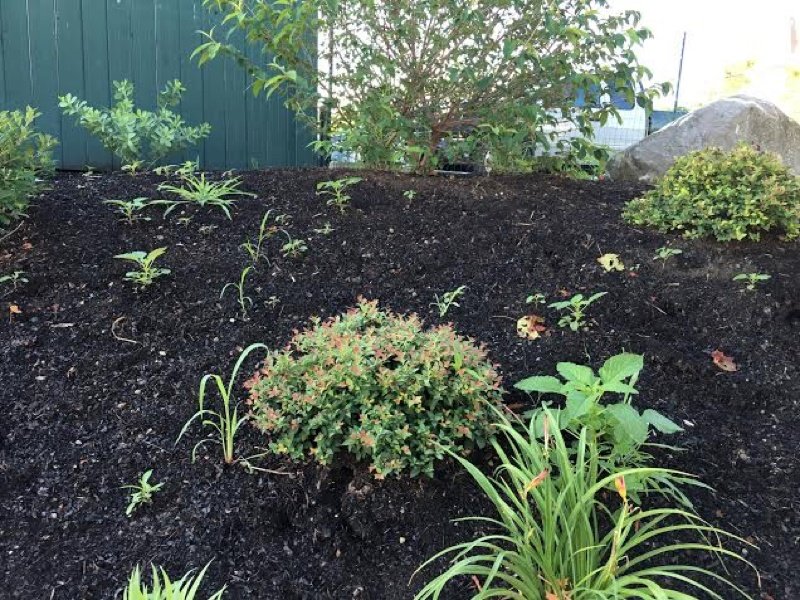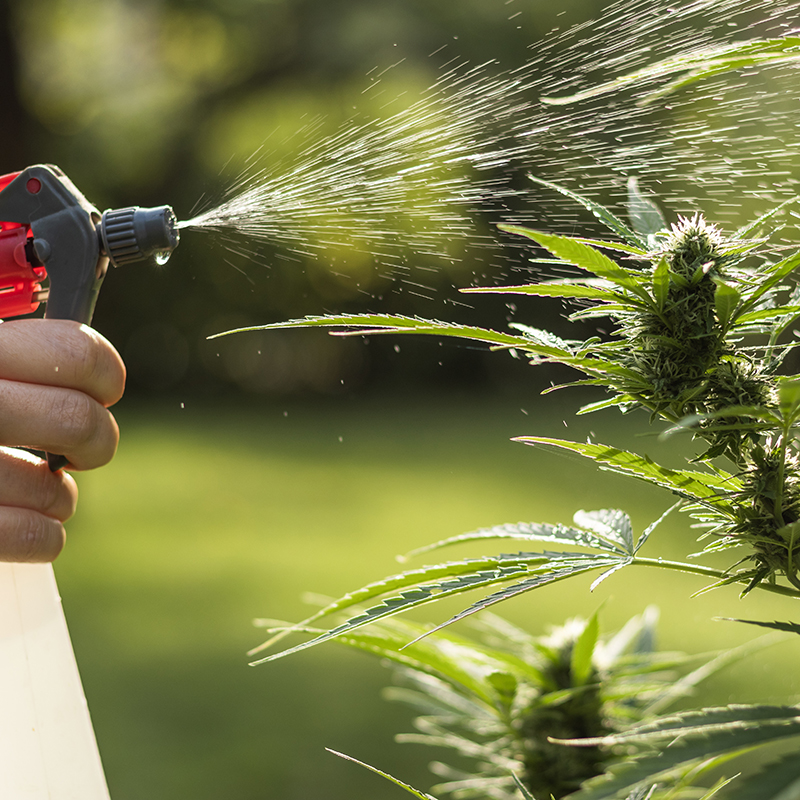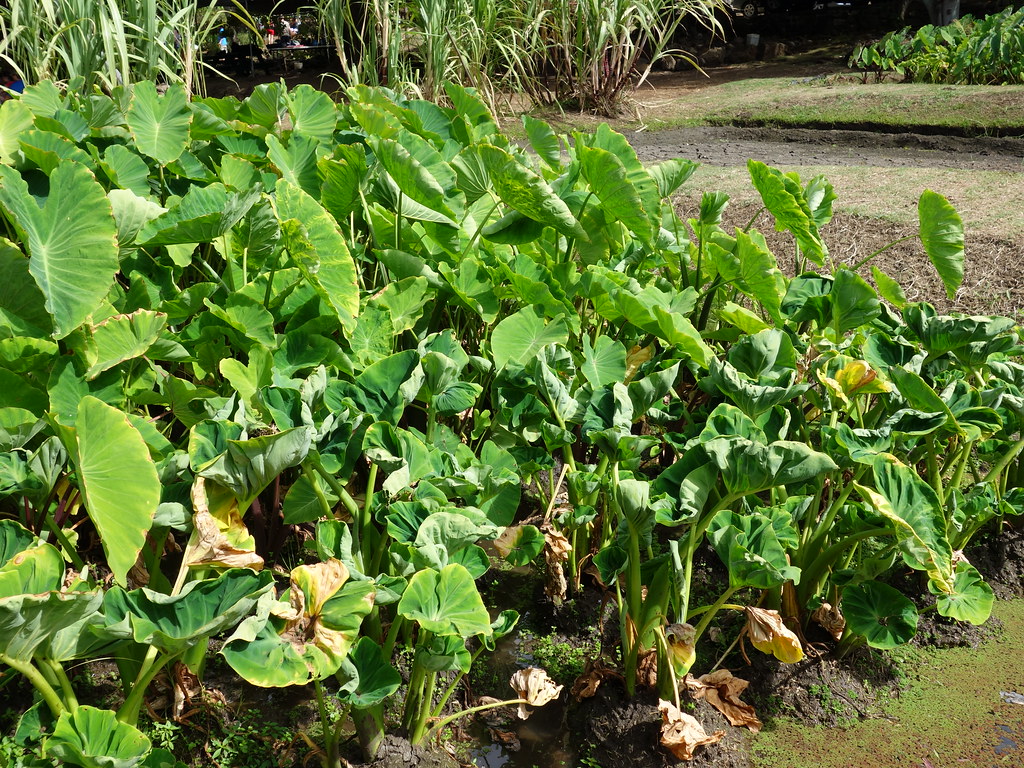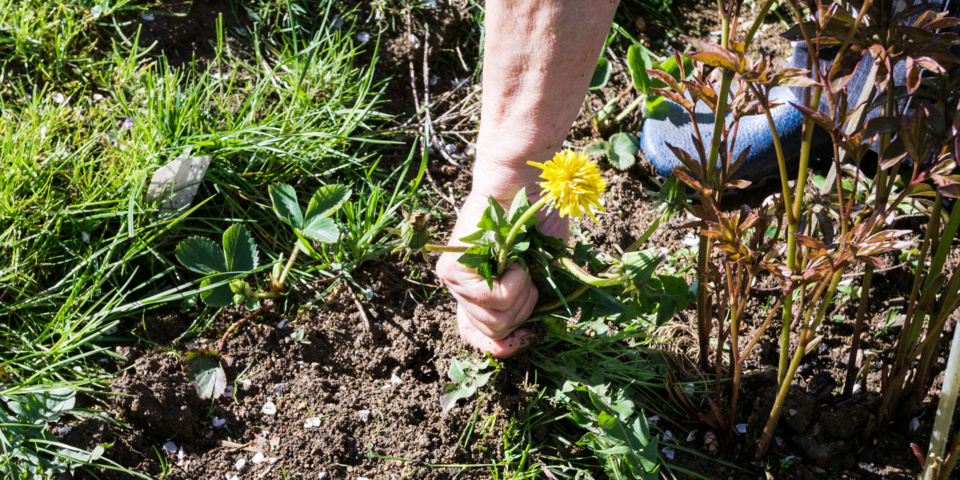
How Long Does Weed Killer Stay in Soil?
March 23, 2021Most weed killers are applied to the soil weeks or months before planting takes place. As the weed population increases, weed killing chemicals become less effective over time. Although weed killers become less effective over time, they can remain in the soil for a significant amount of time. This leads many people to ask, how long do herbicides stay in the soil?
When weeds reappear after you implement weed control, it’s not likely that long-term use of herbicide residue will have any positive impact on plant growth. Several chemical compounds have been shown to have an immediate effect on the health of the soil, however. That’s why the best weed killer does not leave harmful residues in soil for long periods of time. These chemical elements either act as preventative agents or they can actually weaken the soil’s ability to offer the nutrients required to support plant life. You can learn more about how weed killer works here.
Chemical Properties of Most Weed Killers
A few of the chemical structures are known as “irrigation efflorescence” which is a component of many weed killers. It functions as an organic matter conditioner by binding nutrients from the soil together, thereby reducing their mobility and increasing their solubility. This binding and reduction of nutrient concentrations in the soil occur without increasing the acidity of the soil, which can be beneficial for both the weed and the plants. However, in addition, it binds the soil to its natural moisture level.
Weed roots travel relatively short distances from point A to point B. However, soil pores expand significantly as a plant grows. In order for weeds to survive, they must travel further up and down the ground’s path. As weed killers bind soil particles together, the soil pores are made to open even farther, further expanding the weed seed’s pathway and eventually, the weed’s death chamber.
Does Weed Killer Expire?
As a result, weed killers continue to kill weeds for many months, and even years, after they have been applied. When using any type of herbicides, farmers don’t realize when the weed killers themselves will finally expire. The problem is that their herbicide breakdown continues to be potent enough to kill weeds even after their active ingredients have dissipated. Their residue can linger in the ground for years, killing bacteria and other organisms that rely on the weeds for food.
The only way to ensure weed killers will kill a weed until it expires is to apply them at the very end of their recommended active lives. They call this the expiration date on a selective weed killer. Most weed killers have an expiration date stamped on their canisters or jars. When a herbicide application has been in the soil for a long time, its natural killer activity may be disrupted. It is very important to act quickly to prevent weed growth when the expiration date has been reached and to prevent plant injury. If you don’t, the weed population will rapidly increase, and it will overwhelm your garden and your lawn. This can be an even bigger danger to your lawn as it can be a grass killer.

As you can see, you need to be very conscious of how long does weed killer last before you employ one to your crops. Residual activity is a very important consideration as climatic conditions. To make sure that you don’t use too much, apply your chemical herbicides in the correct intervals and dilute the concentration as directed on the canister. Remember, less is more for selective herbicide and pre emergent herbicide! Use a little less than the suggested dose to kill the most lawn weeds and apply more to the remaining ones.
Agriculture Compound as Next-Generation Herbicides
Weed Killers–like roundup weed killer–are not environmentally friendly. Although they don’t require power to run to kill existing weeds in a crop, they create a good deal of greenhouse gases because of their use of power. You might also unfortunately generate some pollution by using weed killers. Therefore, it’s essential that you carefully consider the alternatives to weed killers.
If you’re thinking of using these chemicals, make sure that you study them well. Consider organic herbicides for killing pesky weeds to ensure the health of nearby plants. Do thorough research on each systemic weed killer you want to use before applying them to your own soil surface.
There are many excellent products available on the market today that have been developed specifically to control weeds without harming the environment, such as those made by Sierra Natural Science. In actuality, they are totally biodegradable. Other alternatives you can use to reduce the number of weeds in your soil are: regular watering, planting shade-tolerant vegetables, shrubs, or flowers on the ground bed, proper fertilization, and usage of organic matter mulch. A natural weed killer from SNS could be your best bet for dealing with any weed species.
It’s important to maintain your soil residues intact for the best health of your plants. Besides, it will help if you can discover alternative weed preventer solutions to weeds. It’s impossible to eliminate every weed in your lawn in one go. In fact, it will take some time before you extinguish them from their own soil. It might take a few days to weeks. The best way to do this is to find alternative solutions to weed killers, or use prevention methods and stop them from germinating. This should help you get rid of weeds in the long term.
Lots of people don’t understand the ramifications weedkillers have on our health and the environmental conditions we live in. This is because the concentration of this chemical increases as weeds grow. Put simply, they aren’t great for humans/
Weed Killers Are Not Environmentally Friendly
There are many kinds of weed killers, including some that are applied directly to the weeds. These chemicals usually target an inactive root system before they signal the roots for them to sprout. Other compounds affect only the surface of the weeds, making them inactive. These inactive roots can break off and become lost from the dirt.

The third type of weed killer sends a signal directly to the roots to remain active. This sort of chemical structure remains in the soil long after it’s killed the weeds. Studies on weed control have shown that chemical structures could help the absorption by the soil and remain in the soil for up to 20 years!
How long do herbicides stay in the soil? Weedkiller stays in the soil, or becomes part of it, for many years. Throughout the growing season of the plants, the weed killer is washed away with the water. However, as the plants grow and compete with one another, weed killer breaks down into smaller molecules. Since the weedkiller breaks down further, it becomes less effective in killing weeds.
Some Weed Killers Are Soluble
Some weed killers are soluble. This means that they are water-soluble and will dissolve in water. It follows that the weedkiller will wash off with the water from the ground or remain in the dirt and Leach out to the water. These compounds will stay in the soil and only weakly attack the weeds. The effects of this are that the weed killers may harm both the plants and the soil microorganisms.
On the flip side of this, some weed killers are insoluble. This means they are not soluble in water and will not dissolve easily. This type of weed killer has fewer effects on the weeds and the plants but will cause the soil conditions to become more weed-friendly, so the weed killers will have more effect for days.
Safety Precautions
If you are planning to apply weed killers, there are some things you should consider. For starters, make sure that you’re using the right one, read the label directions. Certain weed killers have more severe effects than others and are not necessarily safe for all gardens. You may want to consult a professional before starting. If you do not have a great deal of time to spend exploring, consider asking people you know who may have used these or have experience with these products.
Another method of determining the reply to your question “How long does weed remain in the dirt?” Is to find out how long it would take the weed to grow again after the weed killer has been applied. Some weeds will grow quickly, while others will take more. If you know the time it will take from the times of application until the weed has grown and spread to an area where it cannot grow anymore, you can calculate the quantity of weed killer that will be required. This might help you decide if you need to use the weed killer or not.

As soon as you have instructions on how long does herbicide last in soil, you will know whether or not you should use the product. Another factor that will determine the response to your question “How long does weed killer stay in soil?” is how thick the soil is. Thicker soil is more compacted, making it harder for weeds to propagate across. This also means that the application of this weed killer will take more. But do remember that, in the event of thicker soil, it is beneficial to use the weed control program a few weeks before the first frost.
Finally, unwanted plants that remain in the soil moisture will also depend on the amount of water your lawn has. In areas where the weather is dry for a protracted period, the fungi stay longer. However, when the weather is warm and moist, these die out more quickly. So, make sure that you water your lawn regularly especially during the spring months when the weather is very warm. Employing good water systems for your lawn and crops can ensure they stay adequately hydrated no matter what.

